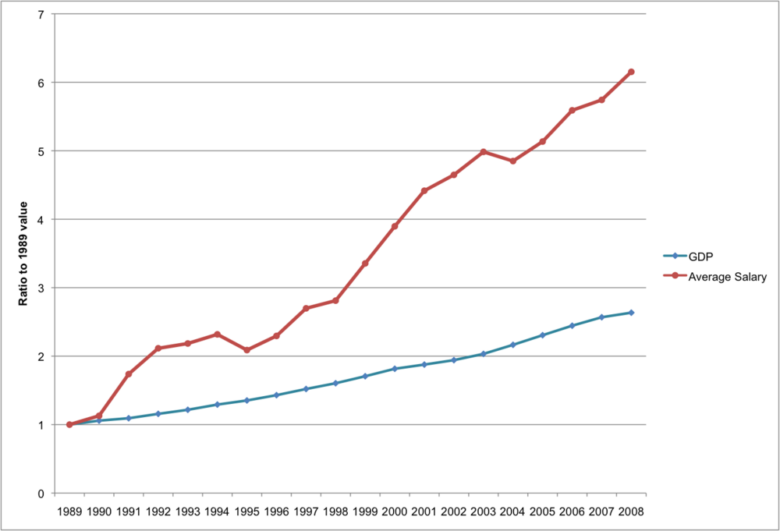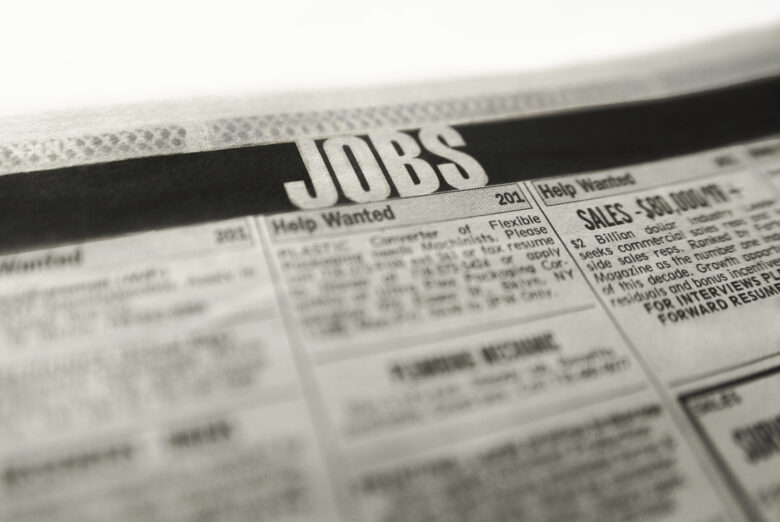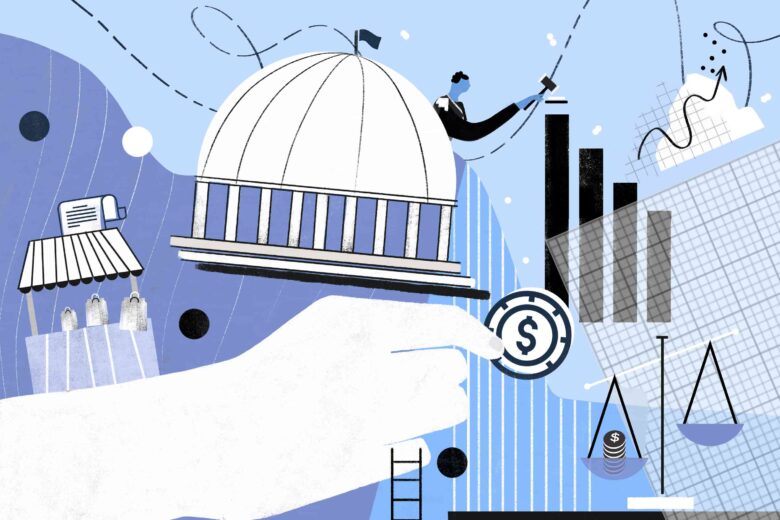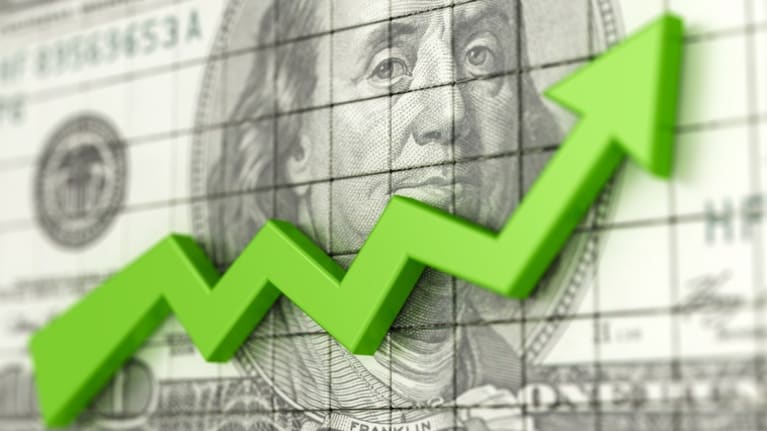Every worker dreams of receiving a higher salary, but the question that many ask is the impact it would have on the economy. Some argue that raising workers’ wages leads to increased spending and consequently helps to stimulate the economy. Others beg to disagree; they insist that higher wages could lead to inflation, higher prices and reduced competitiveness for businesses, ultimately harming the economy.
In this article, we will discuss the impact of increased wages by examining a theoretical framework for understanding the relationship between worker salaries and the economy, as well as exploring the potential positive and negative effects of higher wages for workers on the economy.
Ultimately, this article aims to provide readers with a comprehensive understanding of the benefits and risks of higher salaries for workers in the economy and provide policymakers with insights and recommendations for developing effective economic policies. Read on.
Theoretical framework: How salaries affect the economy

At its most basic, supporting theories contend that increasing wages will give employees more purchasing power, which will, in turn, spur economic growth. This outcome is known as the multiplier effect. According to this effect, rising consumer demand for products and services — a result of employees spending more money — leads to increased output, jobs, and expenditure.
However, the economic impact of rising wages is not always evident and desired. While higher salaries may lead to improved economic growth, the chances are that when wages rise too quickly, it may lead to inflation as businesses raise prices to meet the additional labor expenses. This outcome could, in turn, weaken corporate competitiveness and hurt the entire economy.
In addition, the impact of rising wages on the economy also varies depending on the context. In a highly competitive market with narrow profit margins, for example, businesses may struggle to absorb the expenses of higher wages, leading to job losses and reduced economic growth.
Positive Effects of higher salaries for Workers on the Economy

Increased wages for workers can have several positive implications on the economy. For one, workers who earn more tend to spend more on products and services, boosting demand and supporting economic growth. This increasing demand may also increase output and job creation when firms respond to rising demand by recruiting more workers and expanding their operations.
Workers that receive greater wages are also more productive and satisfied with their occupations, which can contribute to increased efficiency and innovation in the workplace. This will lead to a ripple effect that will result in higher earnings, which can then be reinvested in the business, leading to general economic growth.
Higher salaries can also attract more qualified and experienced employees, which can lead to an overall improvement in the quality of work being produced. When companies pay their employees more, they may also have access to a larger pool of candidates for job openings, which can lead to a more diverse and skilled workforce.
In addition to the benefits for employees, higher salaries can also lead to increased efficiency and innovation in the workplace. When workers are paid well, they may be more willing to take risks and try new approaches to problem-solving. This can lead to greater creativity and innovation, which can ultimately benefit the company’s bottom line.
Finally, increased wages can lead to less income disparity, which is advantageous to the economy. When income disparity or inequality is large, a significant population segment may struggle to meet their fundamental needs, resulting in lower demand for products and slower services and economic growth. On the other hand, when income inequality is minimized, more people can fully engage in the economy, resulting in higher demand and economic development.
Adverse Effects of higher salaries for Workers on the Economy

While there are various potential positive consequences of higher wages for workers on the economy, there are also some potentially harmful aspects to consider, including the possibility of inflation. When workers earn more wages, there is more demand for goods and services, which can cause their prices to rise. This can lead to increased inflation rate as explained on admirals.com, reducing consumer purchasing power, and, eventually, harming the economy.
Another adverse effect of increasing wages for workers is the possibility of higher prices. If firms are compelled to pay higher salaries to their employees, those costs may be passed on to customers through higher pricing for goods and services. This can lead to decreased demand for certain goods and services, affecting the economy in the long run.
Finally, higher worker wages can harm firms, particularly small businesses, in that small businesses may find it difficult to absorb the costs of increasing wages, potentially resulting in lower profitability, job losses and slower economic growth, and may be forced to close shop.
Government Policies and Their Role in Promoting Higher Salaries

Government policies can play an important role in promoting higher salaries for workers. Here are some ways in which governments can encourage employers to pay their employees higher wages:
- Minimum wage laws: Governments can set a minimum wage that employers are required to pay their workers. This can ensure that workers are paid a fair wage and prevent them from being exploited by their employers. Minimum wage laws can also help to reduce income inequality and improve the standard of living for low-wage workers.
- Tax incentives: For example, companies that pay their workers above a certain wage threshold may receive tax breaks or other financial incentives. This can encourage companies to pay their workers higher wages and can help to stimulate economic growth.
- Collective bargaining: This can help to ensure that workers are paid fair wages and have access to benefits such as healthcare and paid time off. Collective bargaining can also help to reduce the power imbalance between workers and employers and promote a more equitable distribution of wealth.
- Education and training: Governments can invest in education and training programs that help workers to develop new skills and increase their earning potential. This can help to create a more skilled and productive workforce, which can lead to higher salaries and economic growth.
- Anti-discrimination laws: Governments can enact laws that prohibit discrimination on the basis of race, gender, age, or other factors. This can help to ensure that all workers are paid fairly and have access to the same opportunities for advancement.
Conclusion
To summarize, the economic impact of rising wages is a complex and multifaceted problem, so the debate over greater worker pay and its influence on the economy will likely rage on for some time. We can, however, work towards a more equitable and sustainable economy that benefits all members of society by analyzing the possible benefits and hazards of higher wages and developing evidence-based policies that consider the local economic situation.


